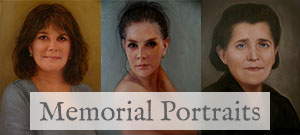
What is a ‘good death’? Does it mean there’s no pain or emotional suffering? Or does it mean we’ve arrived at some acceptance of all that, and of the inevitable impermanence of life?
I’ve often wondered how to make sense of death. How to make peace with it. How to write about it for myself and others, and in so doing, embrace it with my whole heart. Do I want to live in preparation for dying, and transmute it into something worthwhile and beautiful? Or do I want to ignore it until the day it becomes too late?
I was struck by this inspiration driving home from a funeral in 2010 – from the funeral of my older sister, Annette, who died of melanoma metastasis into her liver, lungs and brain at the age of 44. We were deeply connected – born eight years apart on the very same day. I had a melanoma diagnosis exactly one year before she died, a pointy growth on the skin of my right ribcage. I was lucky, it hadn’t spread to my lymph nodes or anywhere else. Her primary cancer had been behind her eye – and she died.
I was sitting in the car, numb and dumbstruck, with my husband and nephew, Annette’s eldest son. We began musing on Annette’s life; who she was, the complexity and multiplicity of her character. How could this person now be a mere mound of earth, a few wilting flowers, some disconnected memories that would surely fade as time passed?
We make birth plans avidly, ushering in new human beings with music, essential oils and massage. Why can’t we do the same for death? How many of us have a clearly communicated death plan? I certainly don’t. But I resolve to write one now. Culturally, we fear death, so the notion of having a good experience seems profoundly foreign to us. People are forthcoming about what constitutes a bad death: Alzheimer’s or dementia, mental illness of any kind, the slow decline and agony of cancer.
But what is a good death? Most of us would say dying in our sleep, oblivious to the journey ahead. I tend to disagree. I would like to be as fully conscious and prepared as I can be. Many Christian traditions and most Buddhists advocate this, particularly in the Tibetan lineage. Yet so many of us want our death to be quick and painless. Nevertheless, my belief is that the preparation for death is a moment by moment meditation, a daily practice, a mantra that repeats itself through the years in an endless loop of growing meaning and depth.
Our ideas of a good death can be paradoxical. Being pain-free and lucid (a tough call!) at the time of death is a wish most of us have; of being able to converse with loved ones and give them the gift of our final words. To be aware that death is approaching, conscious of the profound changes taking place. Yet in many cases we can’t be lucid if pain-free. Instead, we are befuddled by morphine, drifting in and out of consciousness. We want to be looked after, yet we hope not to experience unnecessary interventions and treatments. We want our family and friends around the bedside – to feel an authentic sense of belonging and community. Yet we don’t want to unnecessarily worry them or sadden them. And we definitely want to choose whether to die in a hospital, hospice or at home.
Ultimately, we long for the power to choose to die when we are ready, to let go and be at peace emotionally and spiritually. To die with a real sense of contentment and no regrets, looking back on a life well-lived and loved. As Jack Kornfield so beautifully says: ‘In the end, just three things matter: How well we have lived. How well we have loved. We well we have learned to let go.’



